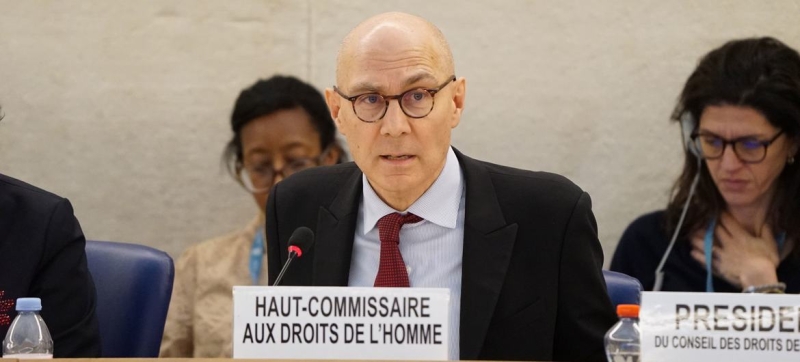
UN High Commissioner for Human Rights Volker Türk. UN High Commissioner for Human Rights: both Ukrainians and Russians need peace Human Rights
Speaking before the Third Committee of the General Assembly, UN High Commissioner for Human Rights Volker Türk drew attention to the fact that the space for civil society around the world is shrinking, and the global human rights system is experiencing an acute financial crisis.
“The war on the territory of Ukraine has moved to an even more deadly stage for civilians; schools, hospitals and shelters are being mercilessly bombed,” he said. “The peoples of Ukraine and Russia urgently need peace – in accordance with the UN Charter, international law and resolutions of the General Assembly.”
The situation in Gaza
On Gaza, the High Commissioner welcomed the release of hostages and Palestinian prisoners as part of the first phase of the ceasefire, while emphasizing that the process must lead to a permanent truce and massive supplies of humanitarian aid. guilty of “gross violations of international human rights law.” The UN’s chief human rights official affirmed that “peace and security for Israelis and Palestinians can only be achieved through the exercise of the Palestinian people’s right to self-determination.”
Turk also expressed alarm at the shrinking space for civil society in many countries, especially during election periods. “People around the world are demanding more respect for human rights, not less,” he said. – Without proper support, serious violations may remain hidden from the world. This gives violators carte blanche and makes our world less safe.”
Support for OHCHR
Türk called on Member States to “move from words to action” by providing full financial and political support to the Office of the UN High Commissioner for Human Rights. This year, OHCHR expects its cumulative budget deficit to be $103 million.
“This is almost 20 percent of the minimum required to effectively carry out our mandate,” Turk said. – The 14 accountability mechanisms supported by my Office were staffed at only 50 percent of required levels. The Commission of Inquiry on the situation in the eastern part of the Democratic Republic of the Congo, authorized by the Human Rights Council, does not receive any funding at all.” Teams covering some countries, including Colombia, DRC, Myanmar and Yemen, have been or will be reduced.
The High Commissioner concluded his speech by acknowledging that governments and non-governmental organizations will not always agree with or endorse OHCHR’s position decisions.
“We speak out publicly, trying to achieve the maximum positive effect,” Turk noted. “When the alarm sounds, our duty is not to silence it, but to act.”
